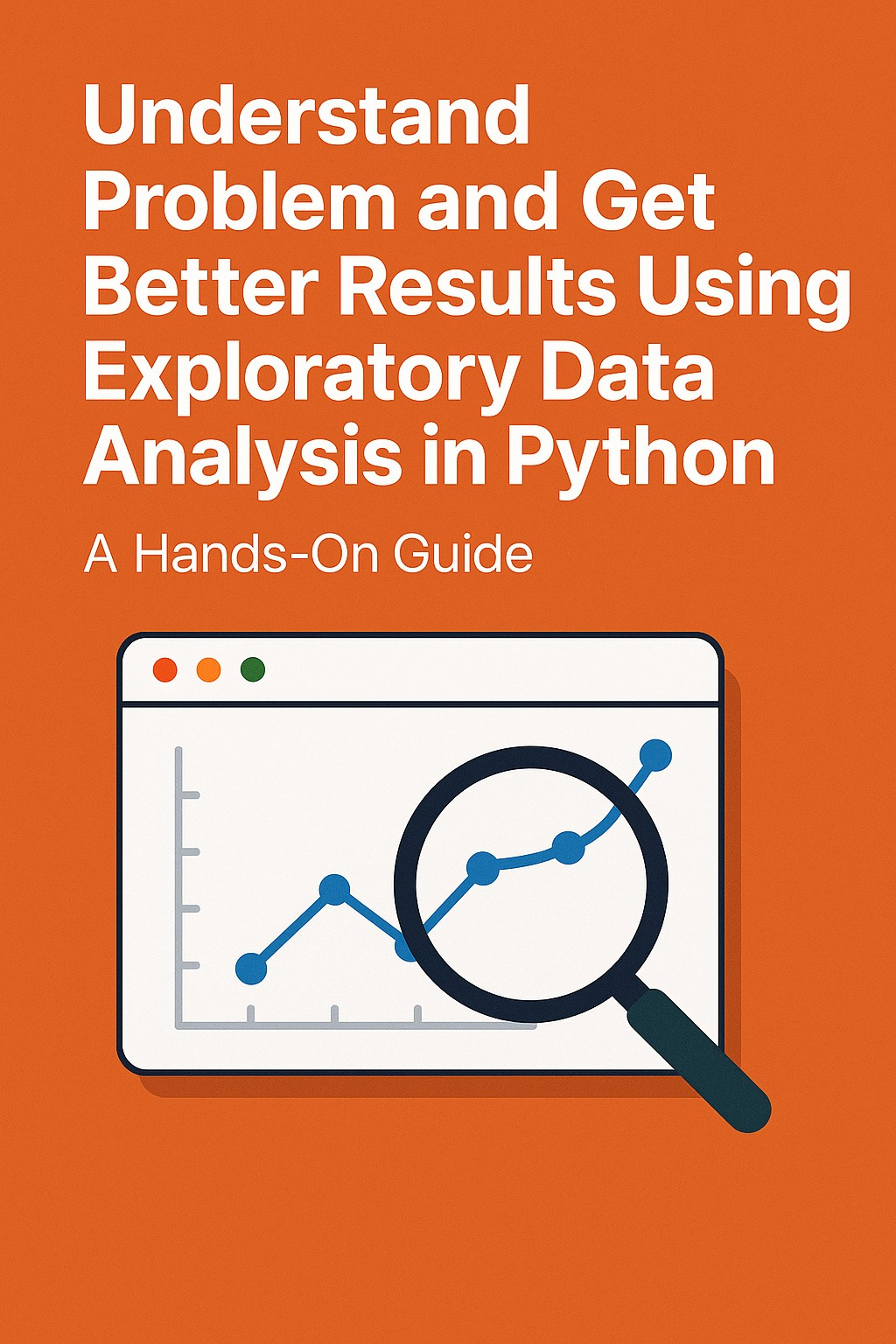Understand Problem and Get Better Results Using Exploratory Data Analysis in Python: A Hands-On Guide
This article shows how systematic Exploratory Data Analysis with Python empowers you to understand your problem more deeply, avoid common pitfalls, and achieve more reliable and insightful analytical outcomes.
Article Outline:
Introduction
The significance of fully understanding your data and problem before modeling.
What is Exploratory Data Analysis (EDA), and why is it crucial for robust results?
The strengths of Python for performing effective EDA in research and industry.
Foundations of Exploratory Data Analysis
The goals and philosophy of EDA in data science.
Key techniques: descriptive statistics, visualization, pattern recognition, and hypothesis generation.
How EDA fits into the broader data science workflow.
Preparing and Structuring Data for EDA in Python
Importing data and creating DataFrames using pandas.
Handling missing values, data types, and initial cleaning.
Inspecting structure and first-glance summary of the dataset.
Core EDA Techniques and Visualizations
Calculating summary statistics and detecting anomalies.
Creating and interpreting histograms, boxplots, scatterplots, and correlation matrices.
Grouped analysis and comparing data segments.
End-to-End EDA Example in Python
Building a sample dataset and loading it into pandas.
Step-by-step workflow: from initial inspection to deep dives into features and relationships.
Using matplotlib, seaborn, and pandas for comprehensive visualizations.
Drawing insights and preparing for the modeling phase.
Best Practices and Pitfalls in EDA
Documenting your workflow and making EDA reproducible.
Common mistakes to avoid and the role of domain expertise.
Ensuring findings from EDA guide and validate future modeling.
Conclusion
Summary of how EDA can clarify your analytical problem and improve the quality of your results.
Encouragement to adopt EDA as a foundational skill for all data-driven projects.
Subscribe to download the full article …
Keep reading with a 7-day free trial
Subscribe to AI, Analytics & Data Science: Towards Analytics Specialist to keep reading this post and get 7 days of free access to the full post archives.


